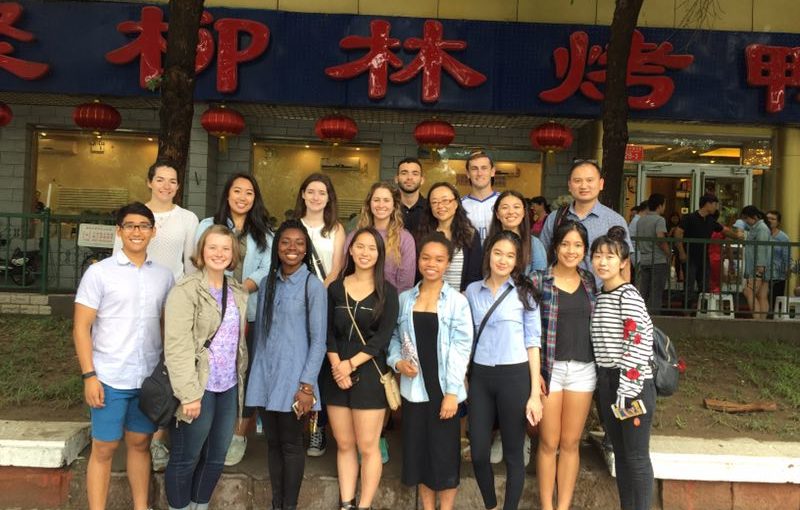 One of the precious aspects of the Notre Dame in Beijing Summer Language Intensive Program (NDiB) is the opportunity to partake in a Chinese language table with students and professors. Every Friday, the students are rewarded for a hard week’s worth of studying and are taken to Beijing’s most popular restaurants.
One of the precious aspects of the Notre Dame in Beijing Summer Language Intensive Program (NDiB) is the opportunity to partake in a Chinese language table with students and professors. Every Friday, the students are rewarded for a hard week’s worth of studying and are taken to Beijing’s most popular restaurants.
The first Friday (June 23rd), we were taken to a restaurant known for its perfection of Beijing Roast Duck. To understand the “craze” for Beijing’s famous specialty, one first has to know it’s history. “北京烤鸭” has a royal lineage beginning in the Yuan Dynasty (1271-1368) in which the dish was only served to imperial courts. Notable mentions of the dish can be seen in classical literature and poetry. The lengthy preparation of the dish begins from raising the duck for exactly 65 days. After, air is pumped under the skin to separate it from the fat and then coated with maltose syrup (yumm) to make the skin nice and crispy. The last step consists of the actual roasting. Although there are two different methods; a traditional closed oven, or a “hung oven technique”, in which the duck is hung on the oven’s ceiling and roasts over burning wood. 
Finally, thin crisps of tender, roasted duck and its skin is served. It is customary to wrap the duck in a thin crepe, accompanied by thin slices of cucumber, spring onions, and sweet bean sauce. Such a glorious experience. Peking duck is a timeless dish and will continue to impact the experience of both locals and foreigners alike.
Safe to say, the highlight of my experience thus far in Beijing has been the culinary aspect. As a self-proclaimed “foodie” my taste buds (and stomach!) are ready for anything, even fried scorpion! Part of cultural immersion hinges on venturing past culinary comfort and I think I am on the right track to fulfilling this aspect. Join me next time for more Beijing insights and FOOD!

